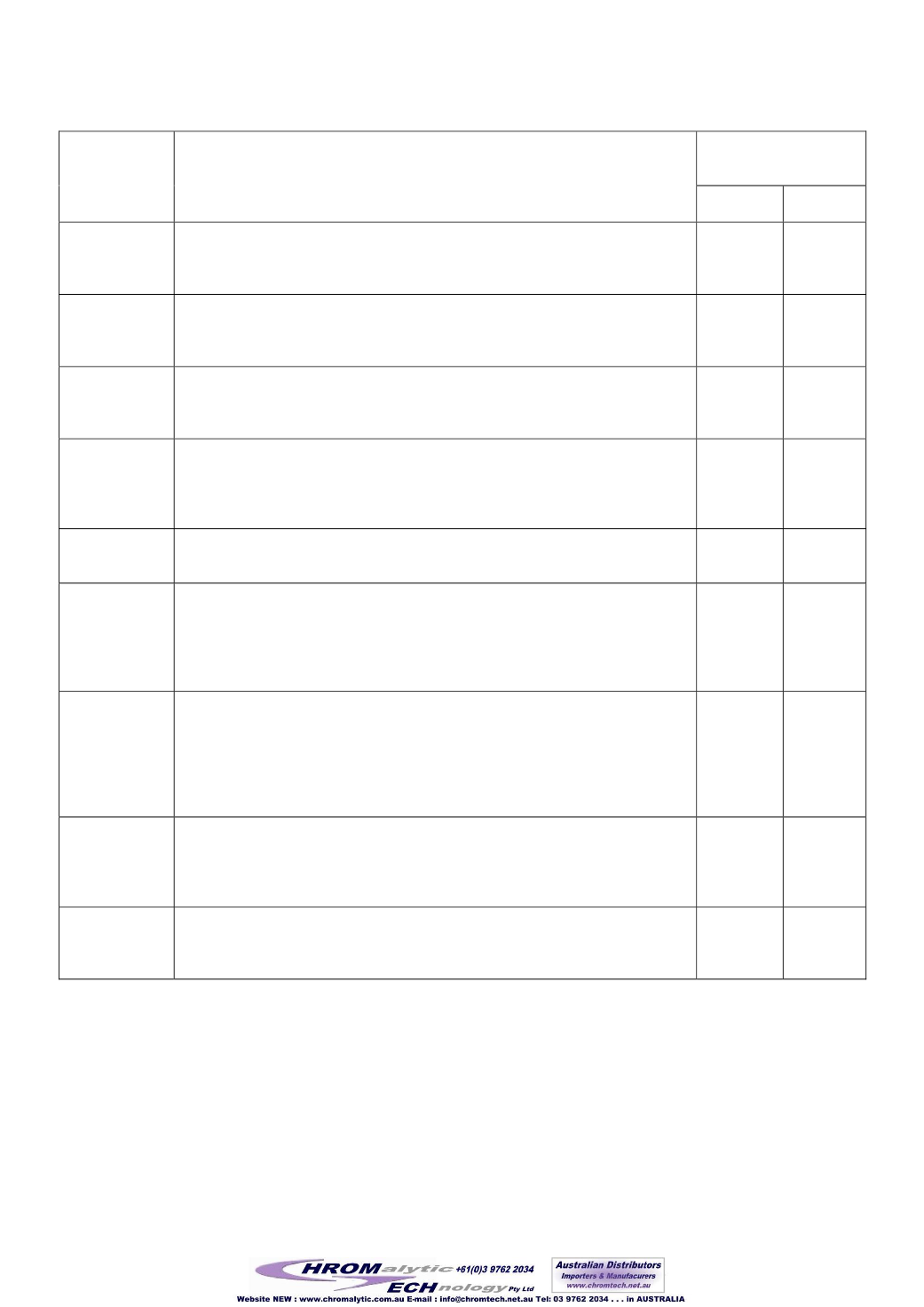
- 4 -
Comparison of functional features of different types of mechanisms
Parameter
description
Assessment of
Construction against
traditional mechanism
monoblock
compact
system
Statistic
weighing errors
(hysteresis,
linearity)
Due to higher durability parameters of elastic bearing elements (flexures) for
correctly assembled traditional mechanism it is possible to reach lower errors
than in monoblocks
-
+/-
Temperature
errors (static
and dynamic)
Statistic temperature errors are fully compensated by electronic units and cannot
me omitted. Dynamic errors depend on correctness of specific mechanical and
electronic constructions and their size cannot be only associated with the type of
traditional mechanism, monoblock or compact system.
+/-
+/-
Weighing time
Weighing time depends mostly on electronic solutions applied. For
electromagnetic balances, weighing time depends, to a small degree, on the mass
of weighing elements, which does not move while weighing, which results from
work principle of mass determination system applied.
+/-
+/-
Resistance
against
transport
shocks and
overloads
Theoretically, better durability of flexures should favour balances with
traditional mechanism extended and commonly used in all made mechanisms
additional protecting elements determine the durability of the specific balance
against shocks and transport.
+/-
+/-
Labour
intensity of
assembly
Due to quantity of parts and the necessity to mount them with high precision,
assembly time of monoblock is the shortest, assembly time of traditional
mechanism is the longest and assembly time of compact system is medium.
+
+/-
Labour
intensity of
manufacturing
parts
Generally the cost of manufacturing monoblock in comparison with traditional
mechanism is very high due to very high costs of operating expensive machine
tools for metal processing.
In compact systems in comparison with monoblocks, high precision machining
is applied to a small number of elements, and the body unit of mechanism is
made as aluminium casting where only insignificant part is machined.
-
+/-
Production
costs of
mechanism
Production cost is the sum of manufacturing costs and assembly costs. With high
costs of hand-made materials, in the older countries of UE, it is justified to
replace it with machine made materials.
However, in the final estimate, the production of compact solution, being a
compromise, which guarantees high quality of balances and with Polish wages
costs is the most beneficial. It is confirmed by the prices of balances offered in
the market.
+/-
+/-
Servicing
Servicing costs of mechanical elements are definitely the lowest for compact
systems. Replacing rocker sets is fast, does not require special instruments and
does not trigger the necessity of correcting temperature parameters.
In the case of monoblocks the whole damaged monoblock needs to be replaced
which is easy for the service but very expensive for the end customer.
-
+
Material wear
and energy
consumption
(ecology)
During production process of monoblocks, especially the older versions, there
are more output materials processed through machining and with newer versions
there is more energy consumed for machining than in the case of shape cut out
using a string.
-
+
186


